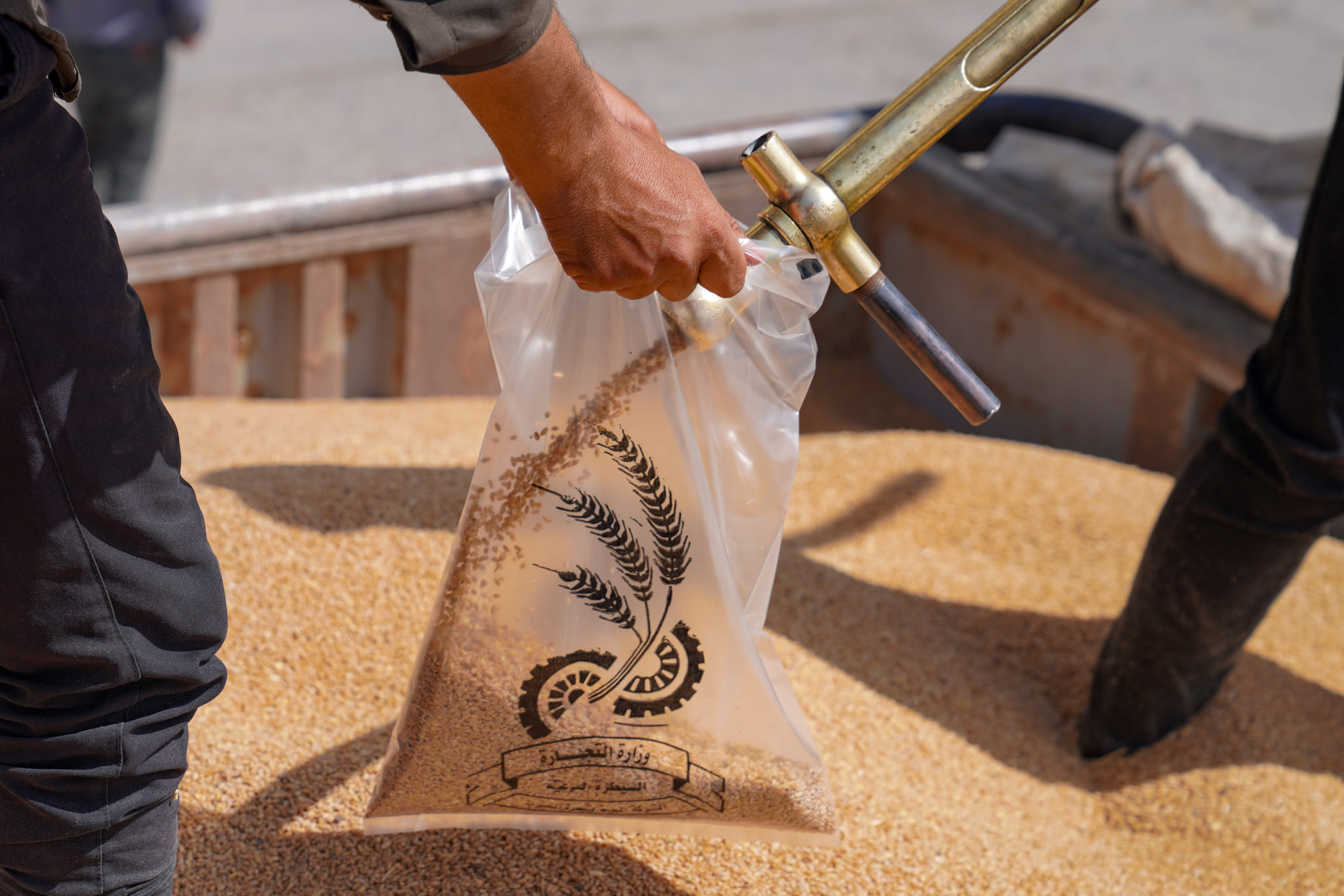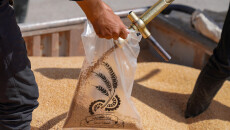Iraqi Prime Minister Mohammed Shia al-Sudani has agreed to receive the entire wheat crop from Nineveh farmers, even if production falls outside the approved agricultural plan.
In this regard, Nineveh Governor Abdul Qadir al-Dakhil informed silos and agricultural units in Nineveh on Sunday, June 22, to begin the steps and procedures for receiving wheat from farmers, according to the Director of the Agriculture Division in Alqosh District, Sarian Safar.
"The decision has been issued, and an area of 103,000 dunams (25,000 hectares) of land planted with wheat outside the approved agricultural plan has been identified for receiving its production," told KirkukNow
The decision has pleased the region's farmers, according to Azzam Khalaf, a farmer from Shingal (Sinjar) district, west of Mosul, center of Nineveh province.
"We hope they will receive our wheat production as soon as possible," Khalaf said. "There are dozens of other farmers who planted wheat outside the agricultural plan. We are happy with the decision because the amount the farmers will receive (from the government) will in any case be better than what we will receive in the market."
According to the agricultural plan, 39 tons of wheat were supposed to be received from Azzam Khalaf, but the decision will include another 11 tons he planted outside the agricultural plan.
By 2024, only four out of nine million donums of wheat and barley were planted in Nineveh province according to agricultural practices.
Wheat production in Nineveh alone was more than 1.393 million tons on an area of more than 3.5 million donums. According to the Central Statistical Board, in 2023 the area planted with wheat and barley was over five million donums.
The Kurdistan Regional Government has received only 20,000 tons of wheat produced in Shekhan, out of a total of 400,000.
Shekhan Silo Director Khaled Bibo told KirkukNow, "After the decision was issued, committees affiliated with the Nineveh Agriculture Directorate began field visits to the agricultural divisions and units in Nineveh to record the production grown outside the agricultural plan."
Shekhan, a district in Nineveh Province, is constitutionally considered one of the disputed territories between the Iraqi federal government and the Kurdistan Regional Government KRG. Therefore, the receipt of grain crops does not include a portion of its production, as the district currently falls under the Duhok Province administratively.
Khaled Bibo said, "The Kurdistan Regional Government has received only 20,000 tons of wheat production in Shekhan, out of a total of 400,000 tons, 118 of which are from Duhok Governorate."
According to agricultural units and divisions, the government receives wheat from farmers at the previous price of 850,000 Iraqi dinars IQD (USD590) per ton, but the government has not yet confirmed this.
In the 2025 agricultural plan, 2,141,000 dunams of land in Nineveh were not registered due to farmers' failure to renew agricultural contracts and other issues related to ownership disputes.
Nineveh Province is considered a rich agricultural area. According to the Central Statistics Agency, 40 percent of the population lives in rural areas. The province is expected to lead in wheat production, as it has in previous years.
In mid-October 2024, the Iraqi Council of Ministers decided to pay farmers 800,000 to 850,000 Iraqi dinars (USD570) per ton of wheat. However, farmers outside the agricultural plan must sell their crops at market prices, which range between 450,000 to 650,000 IQD per ton.
The Ministry of Commerce purchases and stores grains from farmers, distributing them to mills to provide state-subsidized food rations. Flour is a key ingredient in Iraqi cuisine, as bread and rice are staple dishes.






